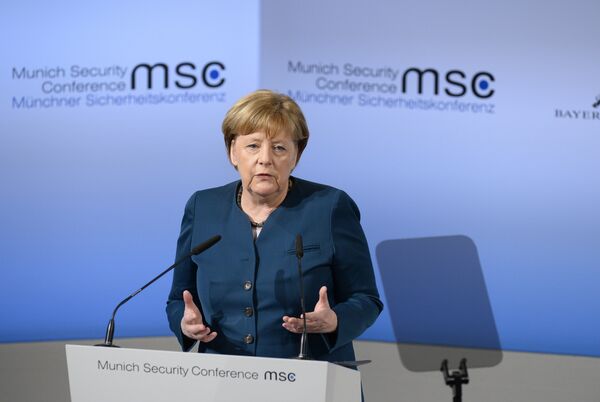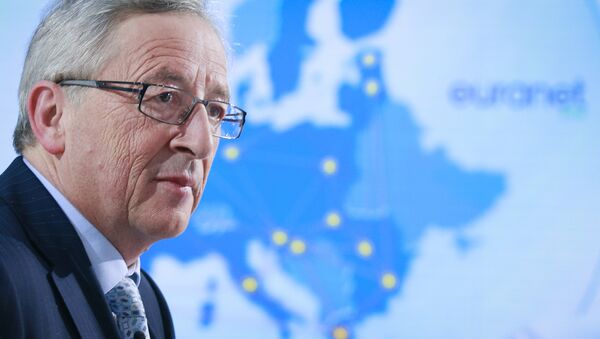Following the vote by the UK to leave the EU — Brexit — Juncker has spent months calling for the remaining 27 countries to work together as one for greater integration. Juncker has long been a proponent of one-EU at all costs.
"There is not enough Europe in this Union. And there is not enough Union in this Union," he said in his State of the Union address in September 2015.
It is up to all of us to make 2017 the year in which #Europe acts on the world stage — a Europe which protects, strengthens and defends us. pic.twitter.com/pxFtXvpC9J
— Jean-Claude Juncker (@JunckerEU) January 29, 2017
However, in the aftermath of Brexit and rising euroskepticism and populism throughout the EU, Juncker has conceded that the Union could move forward with different groups of countries working together on differing policy areas.
"This is no longer a time when we can imagine everyone doing the same thing together. Should it not be that those who want to go forward more rapidly can do so without bothering the others by putting in place a more structured framework that is open to everyone? I will argue for this in the coming days," he told the Institute of European Studies of the Catholic University of Louvain-la-Neuve, Belgium.
His remarks come just days after he met German Chancellor Angela Merkel, who urged him to accept a "multi-speed" EU, in something of a volte face for herself.
"The history of recent years has shown that there will be a multi-speed EU, and not all members will participate in the same steps of integration," Merkel told reporters at a news conference in Malta, early February.

Juncker has admitted the EU faces an "existential crisis," using his State of the Union speech of 2016 to bemoan the fact the EU has become fractious, with dissent over how to progress the eurozone and massive upheaval caused by the migrant crisis.
"Never before have I seen representatives of the EU institutions setting very different priorities, sometimes in direct opposition to national governments and national parliaments. It is as if there is almost no intersection between the EU and its national capitals anymore. Never before have I seen so much fragmentation, and so little commonality in our Union," he said.
He then went on to argue for a more cohesive EU, giving some decision-making back to national parliaments, but — crucially — called for the Commission to become a "political commission."
However, his masterplan for the future — the so-called "white paper" he is working on ahead of the March 25th summit to commemorate the 60th anniversary of the signing of the Treaty of Rome, is likely to be watered down and delayed, since many EU leaders have urged him to curb his enthusiasm for the EU project ahead of crucial elections in the Netherlands, France and Germany.



